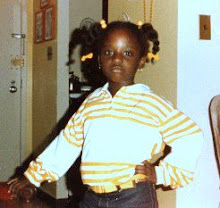I Have a Dream?

The first study taken confirmed that racism was still patent within America. Studies were also taken in which one of them surveyed individuals and asked if they considered themselves racially bias. Eighty-percent of Black Americans said that they did not and eighty-six percent of White Americans said that they did not either. Another study revealed that forty percent of Blacks felt that Whites disliked them and thirty-eight percent of Whites felt that Blacks disliked them. What are we to conclude from what seems like apparent contradictions in the perception of race in the American public? As Michael Eric Dyson suggested in the interview, one clear factor remains; Racism is intrinsically located within the historical DNA of this country. This reality was debated on Paula Zahn’s show among America’s most influential public intellectuals, preachers and writers. Stressed was what they regarded as hidden racism, and the topics of masked racism, white privilege and reverse racism were addressed objectively, yet there was a clear distinction of viewpoints. Needless to say, there was no unified bond of agreement by the end of the program.
One could only imagine what perspective Dr. Martin Luther King Jr. would have brought to this panel. I believe Dr. King would say that America has fallen into complacency. If race is foundationally located within the DNA of America, then it requires continual attention. However, King would more than likely be optimistic about the current of hope in the breakdown of the system of racism. We have made progress towards the dream that he articulated in his “I Have a Dream” speech. Sons and daughters of former slaves and slave owners have been able to sit down together at the table. His four little children are now living in a nation that has taken significant steps towards respecting the content of one’s character as opposed to the color of their skin. If asked, “Has America moved from the problems that it faced in the Civil Rights movement at all?” Dr. King would remind the American public that the spirit of friendship that he envisioned was in fact, a reality. Different races and cultures sit together at lunch counters and in schools. In most cases, it appears to be more than just tolerance but true friendship and reconciliation. Still, King’s optimism would be incapable of ignoring the subtle differences between the racism of the past supported by law and contemporary masked racism in the form of what Jesse Jackson calls, “institutional blockage” that continues to haunt Black Americans as well as other minorities. Even a Beloved Community that highlighted integration as a remedy would be confronted with Hurricane Katrina that exposed the binding relationship between racism and classism. Hurricane Katrina washed away the national denial of the shockingly high number of Americans living in poverty. In lieu of Dr. King’s history of public criticism of the Vietnam War, I do not believe that he would have the propensity to sit still in the aftermath of the storm. However, in spite of current criticisms, the Bush administration has attempted to move towards eradicating the realities that Hurricane Katrina exposed. All attention was shifted from the Iraq War (which King would oppose) and rested in tackling the issues of poverty in New Orleans. Albeit, because of King’s growing dissatisfaction with economic inequality and poverty in America in the sixties, it’s logical to conclude that he would be just as dissatisfied with it in the 21st century. In spite of this, Martin Luther King would acknowledge that America has made clear strides towards his Beloved Community, yet he would be just as certain that we have a ways to go.
Martin Luther King Jr. embraced humanity with a positive attitude that was confident in the ability to rediscover the essential goodness that he believed God intended for humankind to possess. The Beloved Community was his way of expressing God’s intentions of a kingdom of universal reconciliation among the human family. In lieu of this conception, Dr. King has either been regarded as a prophet relaying the will of God, or an unrealistic romanticist “dreaming” of a utopian community. I, however, believe that Dr. King had a heavy prophetic mantle to carry. His challenge was to present a relevant message and systematic resolve to what he considered a human predicament. Albeit, whatever the designation, 21st century America cannot deny that its people are living in a semblance of Martin Luther King’s ideals. King explains in an article entitled, “The Time for Freedom Has Come” that when he asked a student who was active in the movement to express his feeling of their struggle, the young man wrote a poem and placed it on his desk early one morning:
I sought my soul, but my soul I could not see,
I sought my God, but he eluded me,
I sought my brother, and I found all three.
In only three lines, the young man was able to capture the essence of Dr. King’s vision for the Beloved Community. Though his attempt appeared effortless, it seems as though it may take America a little longer to catch up.

